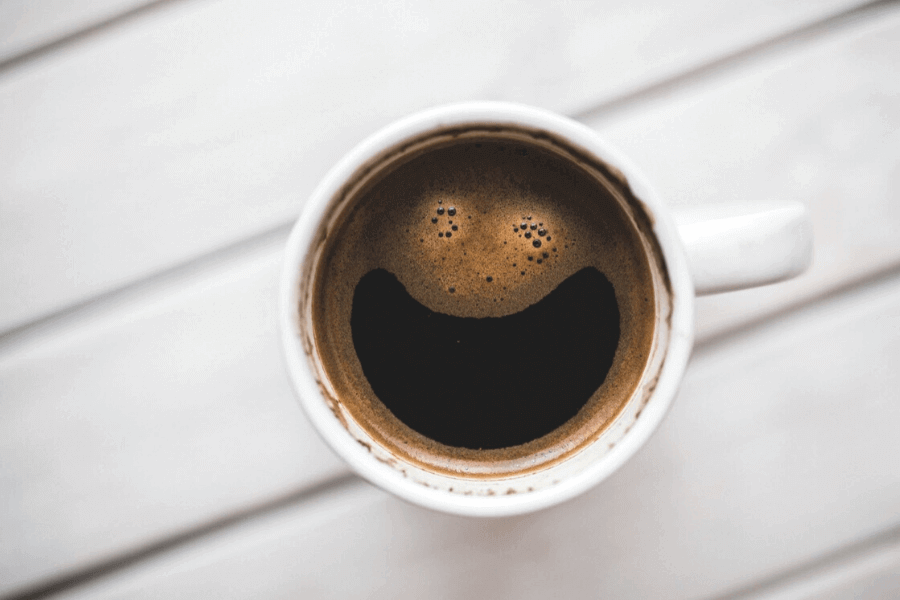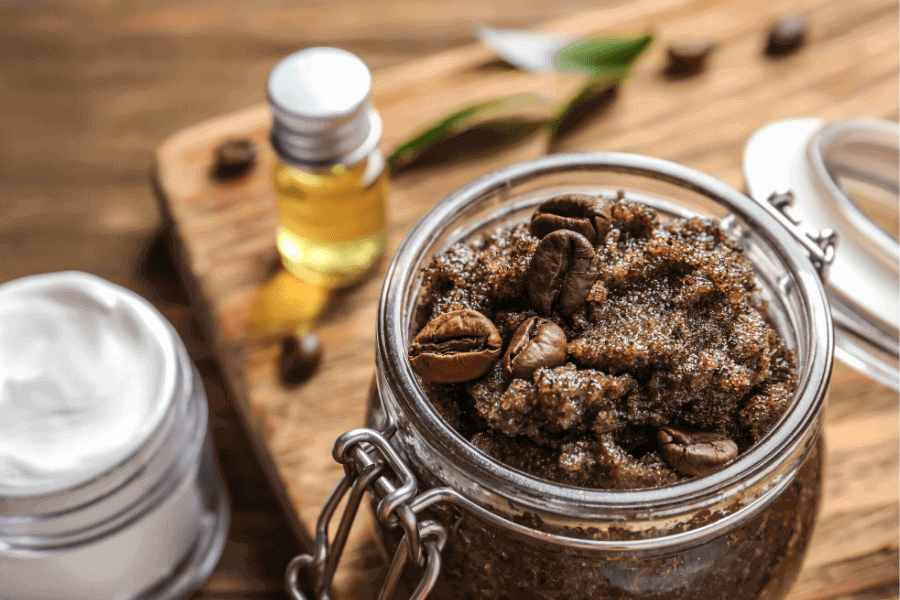Is Coffee Good for You?
Coffee may be one of the most carefully researched beverages and there have been studies for years that attempt to determine the long-term effects of coffee. Java is one of the most popular drinks in the world, so there’s a natural interest in how it might benefit human bodies.
So just how good is it? And since very few things are perfect, does it have a downside?
We’re all familiar with the helpful boost caffeine provides, but some effects may be greater than just getting you through a rough morning at work.
No one’s suggesting that everyone should suddenly develop a coffee habit. But if you already enjoy that cup of joe, you’ll be interested to know what else it can do for you.
What we’ll cover as we examine coffee’s benefits and side effects:
Nutrients in Coffee
You may be surprised by coffee’s nutritional content. While black coffee’s benefits do not include any measurable amounts of macronutrients — fat, carbohydrates, and protein — it does offer micronutrients. Micronutrients include the vitamins and minerals necessary for your body to function properly.
According to Healthline, these are the micronutrients in coffee:
- Vitamin B2 – Riboflavin
- Vitamin B5 – Pantothenic Acid
- Vitamin B3 – Niacin
- Manganese
- Potassium
- Magnesium
In addition, coffee is loaded with antioxidants, which help protect your body’s cells from damage. Polyphenols and hydroxycinnamic acids are plentiful in java, and these compounds have antioxidant properties and may resist cell damage. In turn, healthier cells can better resist things like aging and cancer. For the Western diet, coffee may be the single biggest source of antioxidants.

Coffee Health Benefits
Java may reduce your risk of developing several different diseases and conditions. So these coffee health benefits may effectively help you live longer.
Lowers Risk of Diseases
By drinking coffee, you can lower your risk of developing several diseases, including cancer. Java can mitigate the risk of certain neurological conditions including Parkinson’s disease and stroke. It may also help protect you from developing Alzheimer’s disease or dementia.
In addition, coffee may reduce your risk of multiple types of cancer, with the most notable results in liver and colorectal cancers. We also know that coffee is not a factor in heart disease, it may offer some protection against liver damage, and it may help with depression. These are the health benefits of coffee based on science.
Drinking a cup of joe regularly also appears to lower the risk for Type 2 diabetes. One theory is that it helps your body do a better job of processing glucose.
Skin Benefits
Another well-kept coffee secret is that coffee can help your skin. According to Healthline, caffeine may help tone down redness and inflammation, particularly in the face. Coffee’s benefits for skin may also include lessening the appearance of cellulite, a fatty skin tissue hated by many.
You can even use ground coffee to make an exfoliating face mask. Exfoliation can be great for removing dead skin cells, which may improve your skin’s appearance.
Weight Loss
The caffeine in coffee may be a good weight loss tool. Caffeine is a stimulant and directly affects your central nervous system. This has a couple of different effects on the body. First, it can boost your metabolism and help burn extra fat. Second, caffeine can also improve physical performance, allowing you to work out a little longer or harder.
However, in order to use it successfully to lose weight, you must skip extras like cream or sugar. Black coffee has no calories, but additives increase the calorie count quickly.

Are Men and Women Affected Differently?
Men and women don’t always react the same way physiologically, and caffeine is no different in this regard. There do appear to be some differences between the side effects of coffee in females versus the side effects of coffee in males.
However, it’s not yet determined why that is. It’s thought that hormonal differences may play a role, along with differing habits. For example, women and men often choose coffee drinks with different levels of caffeine or other ingredients.
Negative Effects of Coffee
Unfortunately for some bean lovers, you can have too much of a good thing. Caffeine is a stimulant, so drinking excessive amounts of caffeinated coffee can cause nervousness, increased heart rate, and difficulty sleeping. For those reasons, pregnant women should limit their coffee intake.
The beverage may also stain teeth, as will any dark liquid. So if you can’t live without that daily java fix, make sure you’re taking care of your teeth! Just keep in mind the disadvantages of coffee and don’t overdo it.
Which Kind of Coffee Is Best?
If you’re trying to maximize coffee’s benefits, which kind should you pick? By “kind,” we’re referring to brewing methods, rather than particular beans or a certain roast.
Espresso usually has the highest concentration of antioxidants, which are what provide coffee’s benefits. However, espresso also has the most concentrated caffeine.
Really, the only type of coffee that has been shown to cause problems by itself is the unfiltered kind. If you enjoy having some grounds in a mug, take heed. Unfiltered coffee has been linked with an increase in HDL, which is known as bad cholesterol.
That doesn’t mean you have to give up that French press, but just be a little more cognizant of what ends up in your cup. Knowledge of coffee’s benefits and disadvantages will help you make better choices.
How Much Coffee Should You Drink?
We all know someone who seems to live on liquid caffeine. Maybe that someone is even you. Medical professionals believe it’s safe to drink coffee in moderation, but people should stay below 400 mg of caffeine daily.
That’s equal to about four or five cups, so you can still enjoy that java habit without wondering, “Is coffee bad for my health?” Beyond that, though, you may notice some of the negative side effects that come from too much caffeine.

So Is Coffee Good or Bad?
It’s definitely good for you! Besides being among the world’s favorite drinks, java offers a variety of health benefits.
Coffee is packed with antioxidants, along with other micronutrients. These combine to lower your risk for developing certain diseases and cancers. Java can also improve your skin, both topically and through oral consumption. It can also help with weight loss, but only if you’re drinking it black.
Moderation is key to avoiding excessive levels of caffeine, but you can safely enjoy four to five cups of java each day. Filtered coffee is a better choice than unfiltered, as the unfiltered version actually increases some health risks.
We’d love to hear any thoughts on coffee’s pros and cons and its effect on your health. Has any of this information changed your drinking habits? Let us know!
Is Coffee Good For You? FAQs
What Does Coffee Do to Your Body?
Most java contains caffeine, a stimulant that affects the nervous system. It can increase energy levels and make you feel more alert. Long-term, the health effects of coffee include reducing your risk for certain diseases and cancers.
Does Coffee Count as Water?
Yes, coffee counts as part of your daily fluid intake, according to the Mayo Clinic. That doesn’t mean you can switch to only drinking coffee, though!
What Happens If You Drink Coffee Every Day?
Moderate amounts of coffee can be part of a healthy everyday diet. If you drink more than five cups daily though, you may consume too much caffeine and experience side effects.
Is Black Coffee Healthy?
The health benefits of black coffee are pretty clear. It contains lots of antioxidants and micronutrients.
Can Coffee Make You Gain Weight?
If you’re drinking black coffee or straight espresso without anything added, no, it won’t cause weight gain. However, if you add sugar, milk, or cream to your java, those calories can quickly add up!
Is Coffee Good or Bad for You?
Overall, coffee has many health benefits and is considered good for you when consumed in moderation.





